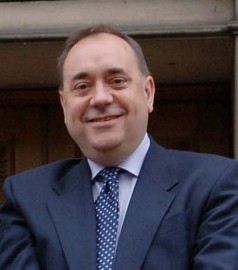
A settlement of Scotland’s long-running constitutional debate came a step closer yesterday with the publication of a White Paper outlining a road to independence. Four different scenarios are set out for the future relationship between Scotland and the rest of the UK, with the aim of holding a referendum at some point next year. (Read the White Paper here.)
Over the past 2 years, the Scottish government has been staging what it calls the National Conversation, on the basis of which this White Paper has been drafted. However, looking at the White Paper, one rather gets the impression that all this has been largely prepared beforehand and, until the referendum gets closer, the debate that matters is yet to begin.
This impression is strengthened by the fact that Scotland has seen not one national conversation but two. In addition to the exercise launched by the government, there has also been the report of the Calman Commission, which was set up by the Scottish Parliament. (The government is a minority nationalist government, while the parliament has a unionist majority.) The Calman Commission was asked to look into ways of amending the devolution arrangements but was specifically excluded from looking at independence as an option. It was as nakedly political as the National Conversation. (Read the Calman Commission report here.)
The four scenarios outlined in the White Paper are:
– the status quo
– an increase in devolution as proposed by Calman
– total devolution, keeping only a very few powers over defence and foreign policy for the United Kingdom government
– independence
The Scottish government claims to support the fourth of these scenarios, but the latest opinion polls show that the Scottish people do not. It is not yet clear whether there will be a referendum held at all – there is not majority support for the idea in the Scottish parliament, (the flirtation with the idea of a referendum by Wendy Alexander when she was Labour leader in Scotland is now history) – nor, if there is a referendum, what the question would be.
In 1997, the ballot paper had two questions on it: whether to set up the Scottish parliament, and whether to grant it the right to vary the rate of income tax. I suspect that a multiple question referendum might be tried again, but there will be a lot of political argument before that issue is settled.
